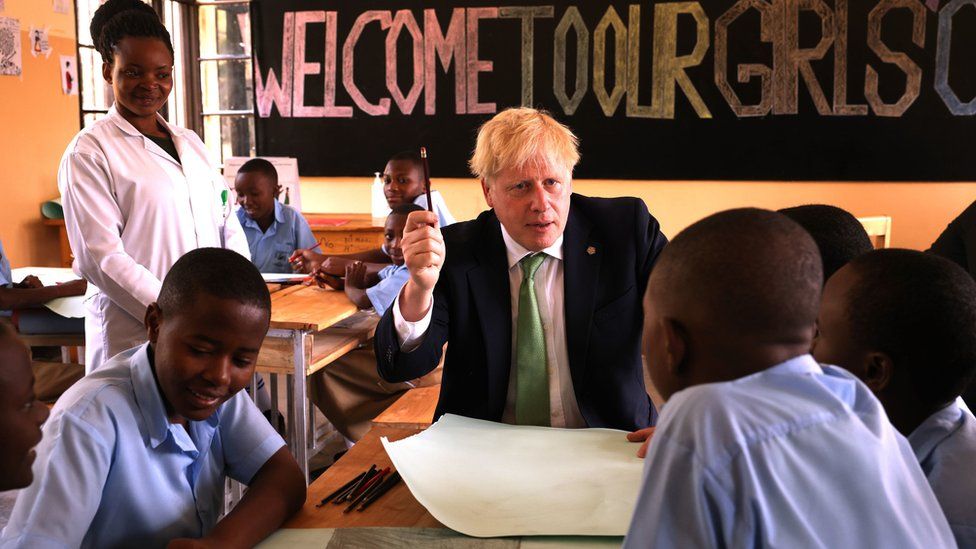ARTICLE AD BOX
 Image source, PA Media
Image source, PA Media
Boris Johnson says he will explain the "obvious merits" of the UK's Rwanda asylum plan to the Prince of Wales if he raises the issue when they meet.
Prince Charles is reported to have called the policy "appalling", but the prime minister has called for critics to keep an "open mind".
The pair are both attending a summit in the Rwandan capital, Kigali, on Friday.
Under the plan people who arrive in the UK via small boats can be removed to the east African country.
Critics of the scheme have raised Rwanda's human rights record and include refugee organisations, politicians and the Church of England.
There have been several legal challenges in the UK against the policy, with the first flight due to take people to Africa prevented from taking off earlier this month.
Mr Johnson, who is in Kigali to meet the heads of Commonwealth countries, said Rwanda had "undergone an absolute transformation" in the last couple of decades and had come on "leaps and bounds" in education and "taking society forward".
"People need to keep an open mind about the policy, the critics need to keep an open mind about the policy," he said.
He added "a lot of people can see its obvious merits" and said if he saw the prince he was "going to be making that point".
Image source, PA Media
Image caption,Boris Johnson is due to meet the Prince of Wales in Kigali
It was reported in the Times, that Prince Charles had privately criticised the policy of sending asylum seekers to Rwanda as "appalling".
But the prime minister, who said he had discussed the matter with Rwandan President Paul Kagame, said the policy was "absolutely necessary and right to fix the problem of illegal cross-Channel trafficking of people".
The pair are in the Rwandan capital Kigali for the the Commonwealth Heads of Government Meeting (Chogm).
Prince Charles, who is with his wife the Duchess of Cornwall, has met business leaders in Rwanda as part of the Commonwealth Business Forum.
Image source, PA Media
Image caption,The Prince of Wales attends a Commonwealth Business Forum Exhibition at Kigali Cultural Exhibition Village, as part of his visit to Rwanda
Image source, PA Media
Image caption,Prince Charles' wife, the Duchess of Cornwall, has joined him on the trip
Image source, Reuters
Image caption,Boris Johnson is also joined by his wife Carrie in Rwanda
Under the Rwanda asylum plan, announced in April, the government intends to remove some asylum seekers who cross the Channel to the UK, sending them via a one-way ticket to Rwanda to claim asylum there instead.
It has been criticised with some pointing out that last year the UK had raised concerns about restrictions to civil and political rights in the country.

 2 years ago
39
2 years ago
39








 English (US)
English (US)